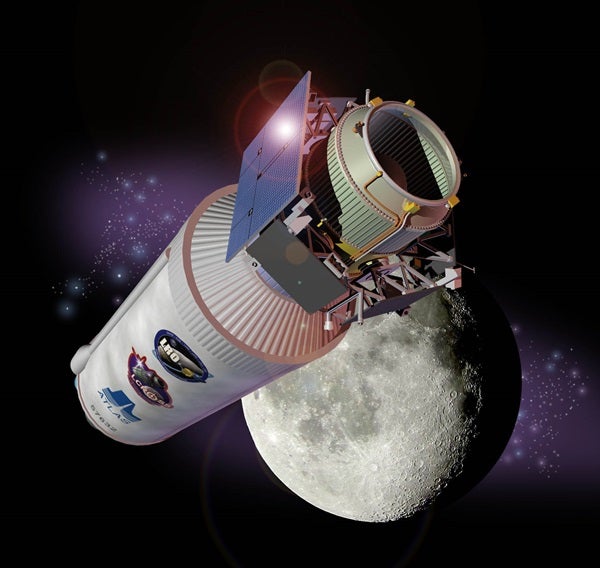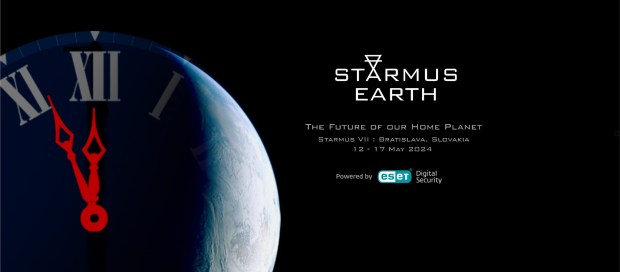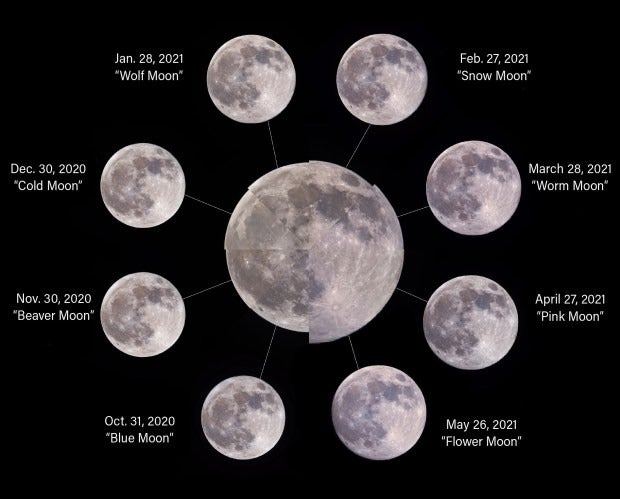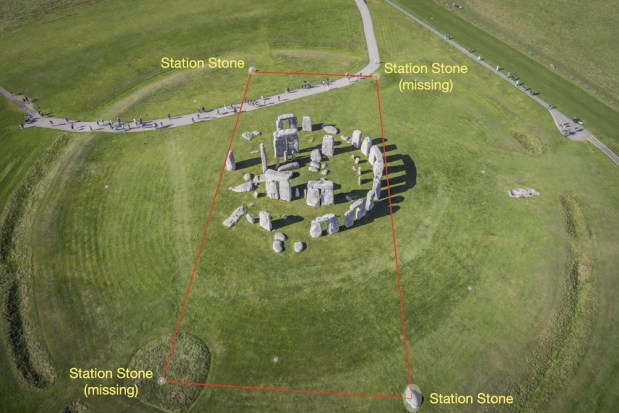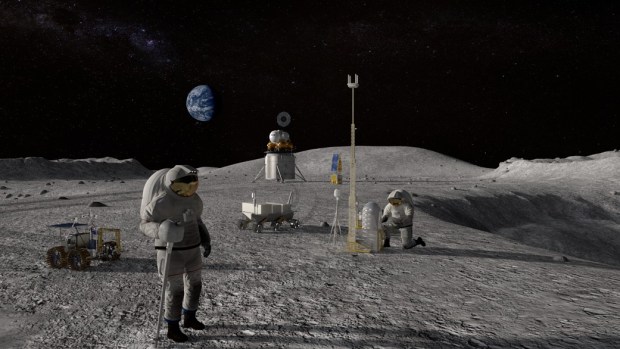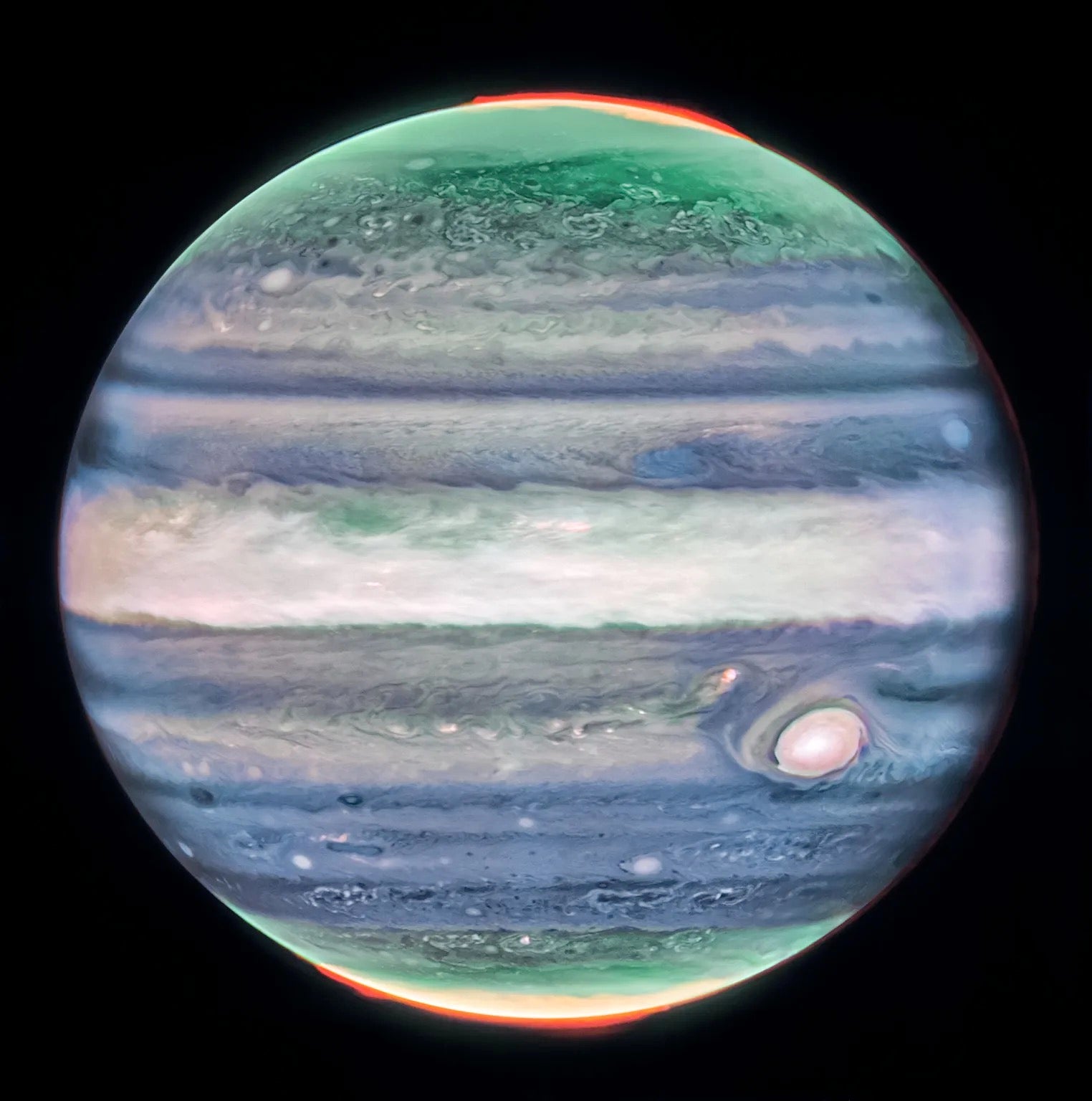NASA’s Lunar Crater Observation and Sensing Satellite (LCROSS) is enroute from Northrop Grumman’s facility in Redondo Beach, California, to NASA’s Kennedy Space Center in Florida in preparation for a spring 2009 launch.
The satellite’s primary mission is to search for water ice on the Moon in a permanently shadowed crater near one of the lunar poles. LCROSS is a low-cost, accelerated development, companion mission to NASA’s Lunar Reconnaissance Orbiter (LRO). At Kennedy, the two spacecraft will be integrated with an Atlas V launch vehicle and tested for final flight worthiness. LCROSS and LRO are the first missions in NASA’s plan to return humans to the Moon and begin establishing a lunar outpost by 2020.
After launch, the LCROSS spacecraft and the Atlas V’s Centaur upper stage rocket will fly by the Moon and enter into an elongated orbit to position the satellite for impact. On final approach, the spacecraft and Centaur will separate. The Centaur will strike the chosen lunar crater, creating a debris plume that will rise above the surface. Four minutes later, LCROSS will fly through the debris plume, collecting and relaying data back to Earth before striking the Moon’s surface and creating a second debris plume. Scientists will use data from the debris clouds to determine the presence or absence of water ice.
“The LCROSS project has had to work within very challenging cost and schedule constraints,” said Dan Andrews, LCROSS project manager at NASA’s Ames Research Center in Moffett Field, California. “The shipping of our spacecraft is a testament to our balanced approach and the great people working on this project.”
To remain within budget and a short schedule of 26 months, the LCROSS project team developed a simple yet innovative spacecraft that uses existing NASA systems, commercial, off-the-shelf components modified to survive the harsh conditions of space, and the spacecraft design and development expertise of integration partner Northrop Grumman Space Technologies.
“LCROSS delivers a high science value per dollar,” said Steve Hixson, vice president for advanced concepts at Northrop Grumman Aerospace Systems in Redondo Beach. “With its versatile, fast, and cost efficient architecture, the LCROSS spacecraft serves as a pathfinder for future low-cost Earth and space science missions.”

